
Screen Time Guidelines for Babies, Toddlers, Children and Teens 2026
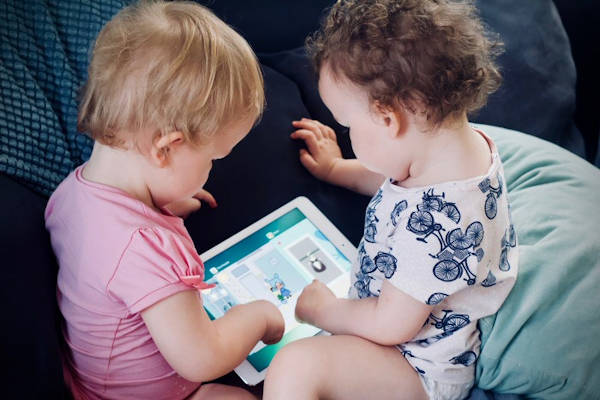
Image Credit: Jelleke Vanooteghem
There is no getting away from it; we are living in the digital age and our children are growing up immersed in a digital world.
Screens surround our children from birth, from television to smartphones, desktop computers and laptops to tablets, iPads and e-readers. Cars are fitted with a Satnav and high end vehicles have built in DVD players. As we wait at a bus stop or an underground station we are now beginning to see video advertisements.
In so many ways these screens truly enhance our lives. Access to a computer or smartphone can allow us to stay in touch with friends and family around the world, to book appointments 24 hours a day and educate ourselves from the comfort of our homes. And of course they keep us entertained, with games, news, TV, films, music and of course, social media.
But do you feel that your child spends too much time in front of a screen? Do you worry that your child seems addicted to playing their computer games or checking their smartphone? How much time spent using a screen is too much? How can you keep your child safe online?
Then there is the question of homework – even primary school age children are set homework which is to be completed online, along with research based homework and projects that are expected to be submitted digitally or at least typed up rather than handwritten.
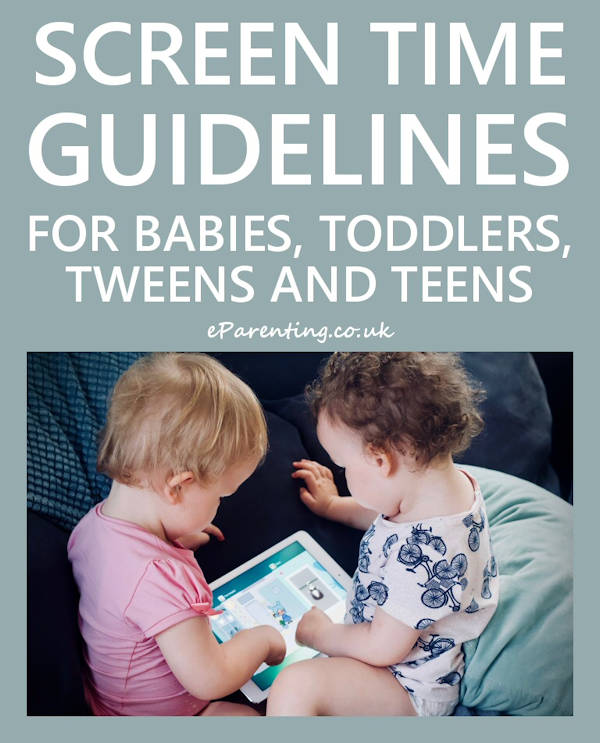
What Is Screen Time?
Screen time does not have any official definition; however it is generally used to describe any time spent using computers, laptops, smartphones, tablets, iPads and e-readers, games consoles and watching television.
Do I Actually Need to Limit My Child’s Screen Time?
Do you even need to worry about the amount of time that your child spends looking at a screen? Well, there is a growing body of research that suggests the answer is yes.
Research by the Journal of Developmental & Behavioral Pediatrics published in May 2016 found that in children of all ages higher levels of screen time use were found to have a correlation with higher levels of sleep disturbance which in turn lead to behavioural problems.
Furthermore, UK research carried out on behalf of Public Health England in 2013 revealed that the lower levels of exercise that goes hand in hand with higher levels of screen time have been shown to increase levels of obesity, as well as problems with attention, lower self-esteem and higher levels of emotional distress.
The most recent UK report on the subject that has been published was carried out by Alicia Blum-Ross and Sonia Livingstone of The London School of Economics and Political Science. Their report Families and screen time: Current advice and emerging research also published in 2016 takes a balanced view of both the potential risks and the many benefits of digital media.
As the LSE paper points out, there are no screen time guidelines published by any official body in the UK or Europe at the present time, so most countries around the world use the guidelines recommended by The American Academy of Pediatrics (AAP) as the basis for their own suggested use of screen time for children of different ages.
However Blum-Ross and Livingston also point out that there is no ‘one size fits all’ approach to recommending screen time as there are many different factors to consider when trying to define a screen time limit, including whether parents spend time with their children while they are playing games and whether the children are using computers for educational purposes or to do homework.
100 Screen-Free Things to Do on a Rainy Day
Screen Time Guidelines for For Kids By Age
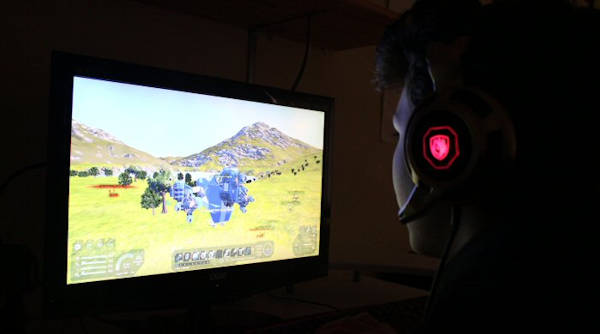
Image Credit: © eParenting
The AAP’s screen time guidelines were last updated in 2016. The previous guidance published in 2013 was a blanket recommendation of no screen time for kids under 2 years old, and less than two hours per day of screen based entertainment for everyone else.
The latest recommendation for children below 2 years old is that they can gain no benefits from using any type of media at all. They are not able to learn from digital media, only from interaction with other human beings, so the recommendation is that it is only used for video chatting, and children under two should not use any digital media.
The AAP's guidelines for toddlers recommend that while well-designed educational programmes such as Sesame Street can improve literacy and numeracy in children aged 2-5 years, most educational apps are of little worth and are not designed to be used with any parental involvement. Screen time should be limited to 1 hour per day.
Above the age of 5 they do not state any specified time limits, recognising that internet use varies so widely in scope, particularly in its roles in homework, personal interests and socialisation. It therefore suggests parents create their own rules and set their own boundaries for internet use. They have created a tool for creating your own Family Media Plan which allow you to make your own rules about time spent using phones, computers and how to behave while they are online.
How to Manage Your Child’s Screen Time
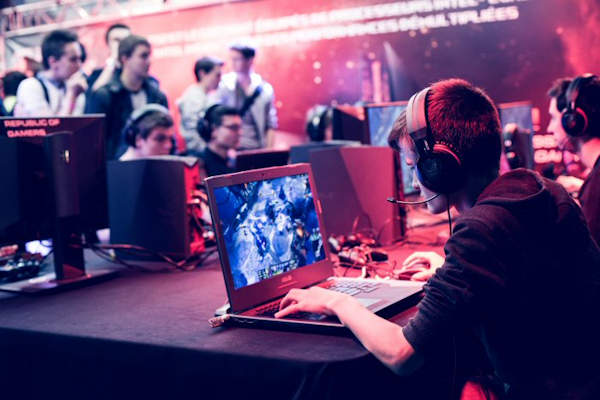
Image Credit: Maxime Rossignol
If you have decided by now that you want or need to manage your child’s screen time, how can you do that?
The published advice from the AAP suggests that screen time should be managed by
- Specifying screen free times such as while eating and driving along with making certain rooms, such as bedrooms, screen free zones.
- Ensuring that your children are having the appropriate amount of sleep for their age, and are also getting the recommended one hour per day of physical exercise.
- Talking to your children regularly about their screen use and what they are doing online as well as discussing appropriate online behaviour such as showing courtesy to others at all times.
In her bestselling 2017 book Calmer Easier Happier Screen Time, parenting expert and director of the Calmer Easier Happier Parenting Centre Noël Janis-Norton is even more hard core than the AAP; she recommends a complete screen ban up to the age of 3 and that between ages 3 to 8 children should have only half an hour per day of leisure screen time (that is, over and above homework requirements).
Children, teens and even adults should have no more than one hour per day of leisure time in front of a screen – not even enough TV time to watch a whole movie as a rule, although flexibility for rare special occasions is permitted.
Her management technique also involves the basic assumption that screen time is not a right but a privilege to be earned through good behaviour and completing tasks such as homework, music practice and household chores before screens can be used for leisure activities. Many children respond well to reward charts. If this works for your child, here are a collection of free printable screen time rules and reward charts.
Furthermore she also recommends the use of screen-free days and even screen-free weeks during school holidays.
Parental Controls and Apps to Limit Screen Time
There is also agreement between most experts and researchers that parental controls and apps to limit screen use are a useful tool that parents should consider.
However heed this warning; you cannot just set the parental controls and forget about them – a determined child will work out how to get around the parental locks and timer apps pretty quickly. Just try a search on Google or You Tube for “How To Get Around Parental Controls” for yourself and you can find the instructions in seconds.
Some experts go further, recommending checking up on your children’s internet usage and removing electronic devices so that they cannot be used except at a time of your choosing.
Parenting Screen Time Limits
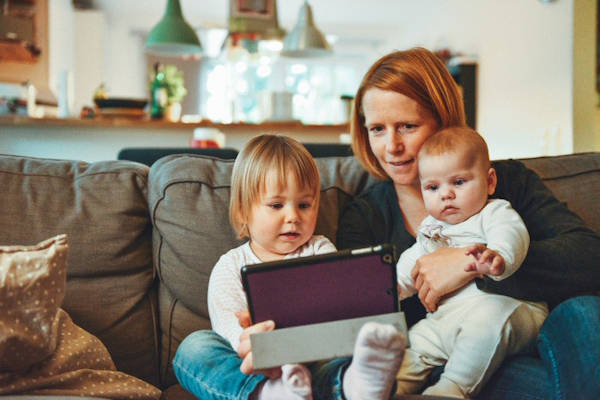
Image Credit: Alexander Dummer
It is almost inevitable that if you are worried enough about the amount of time that your child is spending using phones or computers, you will probably have some degree of backlash to deal with when you begin to restrict screen time. All the experts agree that when you decide to manage your child’s use of electronic media the most important factor in achieving this is being consistent in your implementation of whatever rules you decide to lay down.
You are the parent and you are in charge, not the child. If you already have parenting techniques which you use successfully in other areas of life, whether you are already a devotee of the Noël Janis-Norton’s approach – its application in the management of screen use is the basis of her book – or any other popular parenting method.
One thing that every expert in the field of screen time agrees on is this. It is vitally important that as a parent you model the behaviour that you want to see in your children. If you are constantly checking your phone, spend hours slumped in front of the TV or playing online games, your children are going to see that as the normal way to behave.
To persuade your children to use technology as you want them to, you must follow the same rules.
- If you don’t want them to use phones at the dining table, your phone must also go away at mealtimes.
- If you want to create a family charging station so that phones are removed from bedrooms at night, your phone must be charged there as well. If you usually use your phone to wake you up in the morning, buy an alarm clock – you can get one for under £5.
- If you tend to fill your idle moments with scrolling through social media, find a new habit to replace it, with behaviour that you would like your child to copy. Read a book or a magazine, knit, play cards or tidy up, do some stretches, whatever works for you.
- If you do not like the amount of time that your child spends in front of a screen, you can change that, whether you adopt the guidelines of the AAP or create a set of screen time limits of your own that you are comfortable with. It is in your hands.